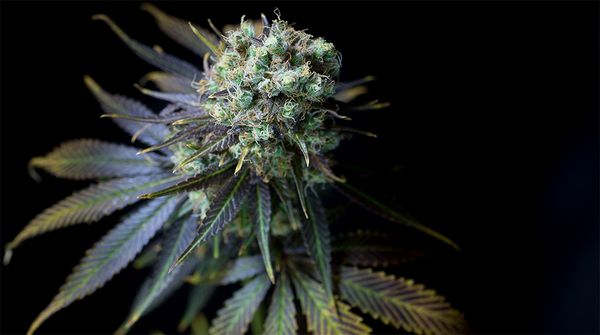- CBD bids farewell to 2017 in style, a year when the cannabinoid, which had gone unnoticed until it became the object of Dr Raphael Mechoulam’s research, has been the main focus of the meetings of some of the most relevant international organisations.
- In this line, cannabinoid’s greatest achievement is a report by the World Health Organisation (OMS) which states that CBD is not addictive, "produces no significant psychoactive of cardiovascular effects", presents "no risk to individuals and society" and has “therapeutic usefulness".
- Let’s take a closer look at the WHO’s report that is set to mark a turning point in the history of cannabis.

The WHO Expert Committee on Drug Dependence attended a meeting held in Genève (Switzerland) from 6 to 10 November to discuss CBD, and one month later it has released a three-page report containing the main findings. Below, we will go through them one by one, but first of all let's focus on the last and probably most relevant paragraph - the fourth one -which states that CBD shows "promise in the treatment of epilepsy" and other disorders, and stresses the fact that it "is not listed in the schedules of the 1961, 1971 or 1988 United Nations International Drug Control Conventions", suggesting that the cannabinoid is not classified as a drug by the UN. The WHO's report thus represents a major step forward in the field of cannabis, as it opens the door to new research on the therapeutic potential of CBD.
Expert Peer Review for Cannabidiol: Overview
1. CBD is neither addictive nor harmful to health
- One of the first conclusions reached is that, based on animal studies, the dependence potential of CBD is low.
- Regarding the abuse potential, the intracranial self-stimulation paradigm in rats suggests that CBD is unlikely to have abuse potential.
- Human studies reveal that CBD has the same dependence potential as placebo and produces no significant psychoactive or cardiovascular effects when administered alone. Likewise, it produces no signs of abuse liability.
2. It is not a source of public concern
- According to the WHO's report, no public health concerns have been identified.
3. CBD has therapeutic potential
- The report highlights that advanced research has proven the effectiveness of CBD against epilepsy and mentions a list of additional conditions that could benefit from CBD.
4. Impact of the substance
- Based on existing evidence, the WHO's report concludes that CBD "is devoid of psychoactive properties", has no "potential for abuse" and "is showing promise" in the treatment of various conditions, highlighting the need for further research.
CBD, the cannabinoid that is fostering the legalisation of cannabis
At European level, it has been legalised in Switzerland, but the CBD rush is proving to be a global phenomenon. In fact, the cannabinoid was recently removed from the World Anti-Doping Agency's Prohibited List, allowing professional athletes to use THC-free marijuana as of 2018 and prompting more and more international organisations to follow suit.
What is CBD?
CBD is a component found in some - not all - cannabis strains and, contrary to THC, the plant's most popular cannabinoid, it is a non-psychoactive substance. Quite the contrary, as being an antagonist of THC, CBD reduces the effects of THC - psychoactivity, dry mouth, tachycardia, altered perception of time. This capacity to modulate the effect of THC makes CBD very interesting for recreational purposes, as cannabis strains with different THC:CBD ratios result in greater consumption possibilities. Last but not least, CBD has several medicinal properties.
What are the medicinal properties of CBD?
As the WHO has just confirmed, CBD has no psychoactive properties and thus is virtually free of adverse effects. Meanwhile, its great therapeutic potential is raising increasing interest in the scientific community.
- Anticonvulsant properties: Several clinical studies have demonstrated that CBD could be an effective way of treating epilepsy, specifically Dravet syndrome, a rare form of epilepsy characterised by unusually long seizures that lead to increasing brain damage and even death in the most acute cases. Accordingly, cases like that of Charlote Figi, a little girl who managed to control her convulsive seizures with CBD after trying all sorts of ineffective treatments, are very promising.
- Muscle relaxant: Other studies suggest that the co-administration of THC and CBD could prove useful against multiple sclerosis-induced spasticity - unusual tightness and stiffness of muscles.
- Neuroprotective action: According to several studies, CBD contributes to the recovery of brain areas by affected chronic, acute neuronal death.
- Mental disorders, stress and depression management: A number of scientific studies suggest that the substance, far from having a negative impact in this regard - as may be the case with THC - could prove to be a useful tool for the treatment of psychosis.



Comments from our readers
There are no comments yet. Would you like to be the first?
Leave a comment!Did you like this post?
Your opinion about our seeds is very important to us and can help other users a lot (your email address won't be made public).